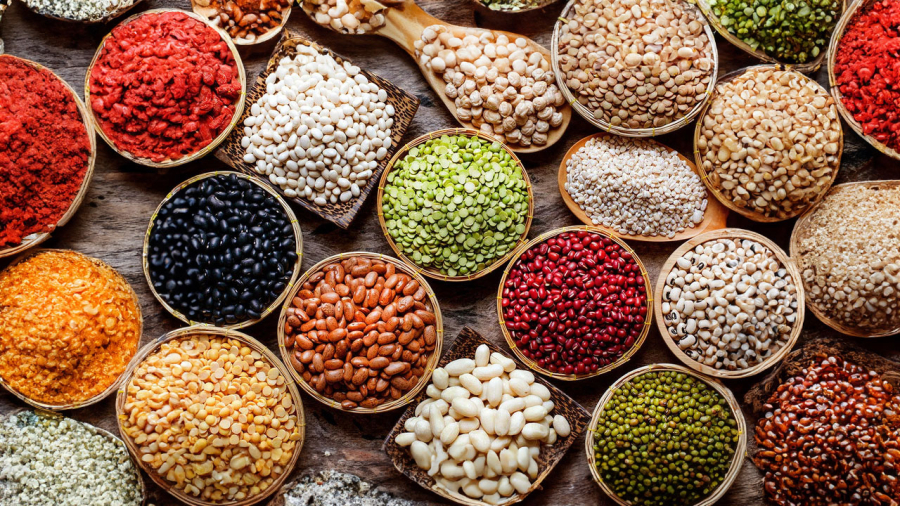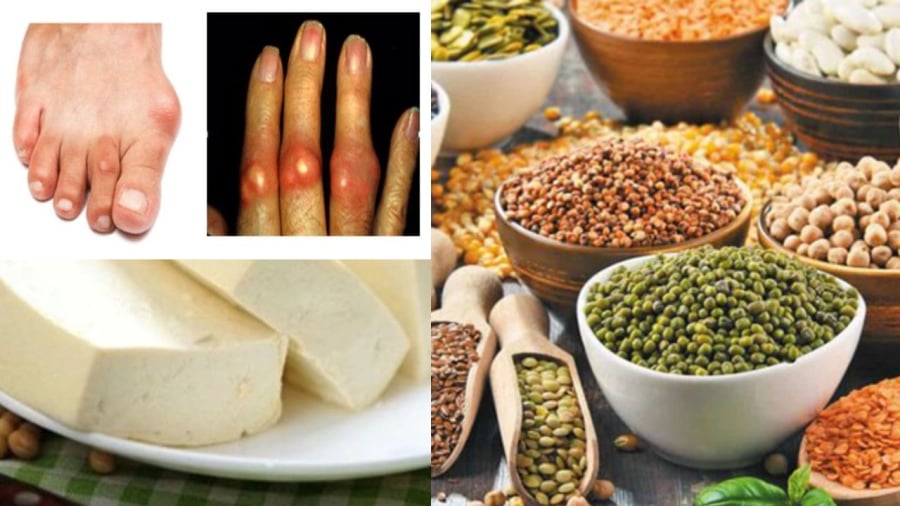Tofu and various types of beans such as black beans, soybeans, lentils, green beans, black-eyed peas, and red beans are plant-based foods rich in protein. Beans and bean-based products are often included in a heart-healthy diet, especially as a substitute for animal protein for vegetarians. The nutritional value of beans is considered better than red meat because they are low in cholesterol and fat.
However, they also have some downsides, as certain types of beans are rich in purines, tyramine, and oligosaccharides which can affect certain individuals. Therefore, some people should limit their intake of beans and legumes. These include:

Patients with gout
Patients with gout often experience pain due to the accumulation of uric acid crystals in their joints, causing severe joint pain, inflammation, redness, swelling, and difficulty in movement.
Consuming foods high in purines can increase uric acid levels and trigger acute gout attacks. Foods high in purines include lentils, green beans, sardines, tuna, and red meat. Therefore, experts advise individuals at risk of developing gout to limit their consumption of these foods.
However, there is also information suggesting that despite their high purine content, beans and bean-based products can still be beneficial for gout patients. Therefore, further research is needed to clarify this. Individuals with gout should assess their personal situation and try small amounts of beans to see if they have any adverse reactions. If they experience increased pain after consuming beans, it is recommended to avoid these foods.

People with migraine headaches
Migraine headaches afflict many individuals and can cause debilitating symptoms, including nausea, sound sensitivity, visual impairment, and prolonged numbness.
Unlike regular headaches, migraine headaches can be triggered by specific factors such as stress, alcohol, hormonal fluctuations, and certain foods like beans. The presence of tyramine in some types of beans can also contribute to migraine headaches. Patients with migraine headaches may have insufficient levels of the enzyme monoamine oxidase required to break down tyramine, which can worsen the condition.

Individuals with irritable bowel syndrome (IBS)
Oligosaccharides, natural carbohydrates found in beans, can trigger irritable bowel syndrome due to their inhibitory effect on digestive enzymes in the intestines. People with IBS need to exercise caution when consuming beans and legumes. Symptoms of IBS include constipation, diarrhea, cramping, feeling of fullness, bloating, and pain. Consuming a large amount of beans can exacerbate these symptoms, so it is recommended to limit bean intake.

Individuals with thyroid-related conditions
Beans and soybeans are nutrient-rich foods, but people with thyroid conditions should be cautious. Some studies have shown that consuming large amounts of beans can worsen the condition of individuals with thyroid problems.
Delicious and Nutritious Alternative to Chicken Meat: High Protein, Budget-Friendly Snack at Only 5,000đ – a Plate Full of Goodness
Tofu, also known as bean curd, is a nutritious, versatile, and affordable food option that is favored by many households. It is packed with nutrients, easy to consume and prepare, and offers a wide range of culinary possibilities. Tofu is a popular choice for those seeking a wholesome and budget-friendly meal solution.



































